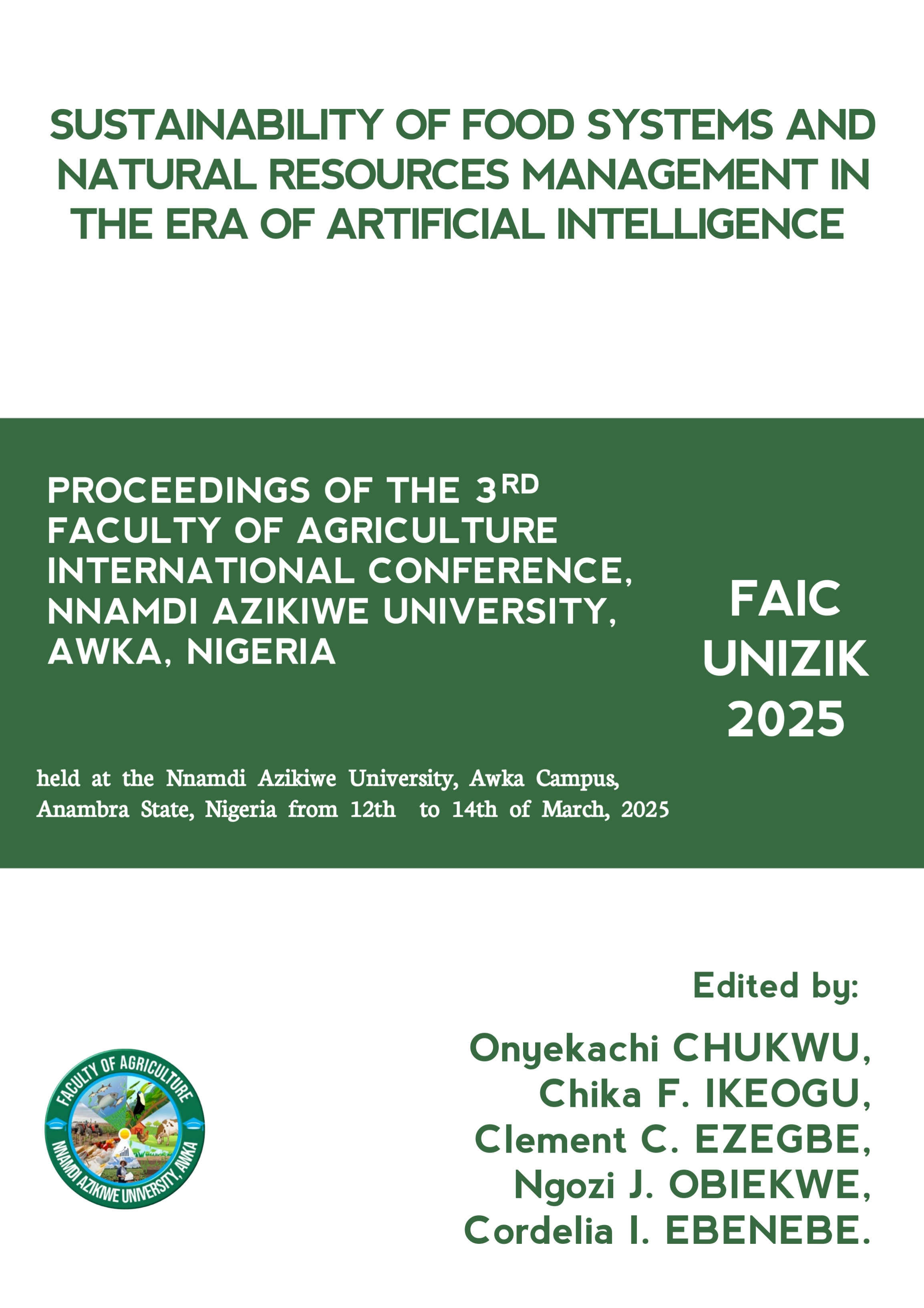Effect of Climate Change on Rice Productivity in Nigeria
DOI:
https://doi.org/10.5281/ykpvh744Keywords:
Climate change, Rice, Nigeria, ProductivityAbstract
This study analyzed the effects of climate change on rice productivity in Nigeria from 1991 to 2022. It assessed how climate variables such as rainfall, temperature, sunshine duration, carbon dioxide emissions, and relative humidity influenced rice productivity. The research utilized secondary data analyzed through econometric models, including the Autoregressive Distributed Lag (ARDL) model and the Augmented Dickey-Fuller (ADF) and Phillips-Perron (PP) tests. The findings revealed that in the long run, annual rainfall and lagged temperature, carbon dioxide emissions, and relative humidity were significant at 5% determinants of rice productivity, while in the short run, current temperature and lagged climate factors played a crucial role. The study concluded that climate change significantly impacted rice productivity in Nigeria during the study period. It recommends the adoption of climate-resilient crop varieties, improved irrigation infrastructure, and enhanced agricultural extension services to mitigate the adverse effects of climate change on rice productivity in Nigeria.





